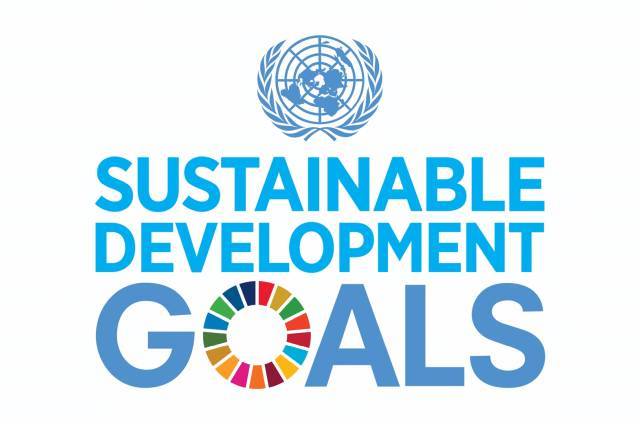World leaders gathered at the UN General Assembly in September of 2015 to launch an ambitious new sustainable development agenda. It builds on progress made since the Millennium Declaration, with a clear focus on reducing poverty and inequality, improvement of people’s lives, and the promotion of peace, security, good governance, and the rule of law.
Essential to ensuring the success of the Sustainable Development Goals are government accountability and national policy. Many experts believe that parliaments should be at the forefront of these imperatives, because they play a critical role in meeting those requirements through their lawmaking, budgeting, and oversight functions.
The 17 SDGs and their 169 targets were designed to encapsulate all three pillars of sustainable development – economic, social and environmental. They have a comprehensive policy framework, which applies to both developed and developing countries. The goals range from eradicating absolute poverty to reversing climate change, and from achieving gender equality to changing consumption and production patterns. A number of global indicators have been designed to help track progress towards the goals.
The 2030 Agenda places people at the centre of the development process. It calls on governments, parliaments and other stakeholders to design and deliver laws and programmes that meet the needs of the people, break down policy silos, uphold human rights, and leave no one behind.
With a deep interest in seeing the success of the SDG implementation in Nigeria, I researched a few simple good practices guaranteed to implement a better delivery of the 2030 Agenda.
Data-Enabled Monitoring
According to Concord, the European Confederation of Relief and Development NGOs, it is not far-fetched to invite every interested actor to join a data and monitoring partnership on the SDGs to gain expert knowledge on the data needed to be delivered to measure the indicators as well as expert knowledge on the quality on the data. The participants in the partnership should be civil society organisations, private sector representatives, municipalities, representatives of academia and many more, not just the office of Special Adviser to the President on SDGS.
Through this open partnership data can be gathered, and quality in the data can be assured, which can lift the number of indicators that the SDGs office is able to report on. To follow the work, an equally open and public online platform can be easily launched. The platform should be updated with new data every year. From then on, the office can continually meet with new partners to bring in new expertise on indicators missing data or missing quality in the data.
International Peer Review of Sustainable Strategy
Even with a government that is well on track with its SDG-implementation (Nigeria is far from this), a review like this can show that work done is far from sufficient to reach the ambitious goals of the Agenda 2030 and to tackle the pressing global challenges ahead such as pervasive poverty, social inequalities and climate change. Feedback from outside experts can contribute to monitoring and accountability of the implementation efforts of governments. It can point at blind spots and slow progress in a cooperative way. It can also facilitate peer learning as an essential element for improving the implementation of the 2030 Agenda on the national level.
The stellar example of such review is in Germany where the German government subjected its Sustainability Strategy (GSS) to a high-level international Peer Review. The strategy was first adopted in 2002, and has since been updated regularly, but in 2017 it was revised to accommodate the implementation of the Sustainable Development Goals. In 2018, for the third time after 2009 and 2013, a group of international peers comprising former politicians, scientists and civil society representatives reviewed the strategy.
Independent Audit on Implementation
Can you imagine a thorough audit of the implementation of the 2030 Agenda for Sustainable Development in Nigeria spanning from 2016 through 2022. The audit can be aimed at assessing the legal framework conditions, the national recognition of the SDGs, the responsibilities of the federal government, the coordination across all levels of government, the implementation plan and the monitoring of progress. Such an audit could provide an independent and critical evaluation, which holds a mirror to the government and provides concrete recommendations for which next steps could be taken to move Nigeria’s implementation of the 2030 Agenda forward.
Parliamentary Involvement
Some countries have several standing committees that debate the integration of the SDGs and some have even formed sub-committees to figure out how the integration can be made. Our lawmakers can in fact adequately galvanise the government to propose concrete actions to reach the SDGs or hold the government to account when it fails to act sufficiently.
According to the UN’s Quito declaration, “stronger parliaments will have to play a central role in the implementation of the Sustainable Development Goals. This will include ensuring that development policies and plans are drawn up through participatory and inclusive processes, and with regular progress reports submitted to parliament for review.”

 Join Daily Trust WhatsApp Community For Quick Access To News and Happenings Around You.
Join Daily Trust WhatsApp Community For Quick Access To News and Happenings Around You.


